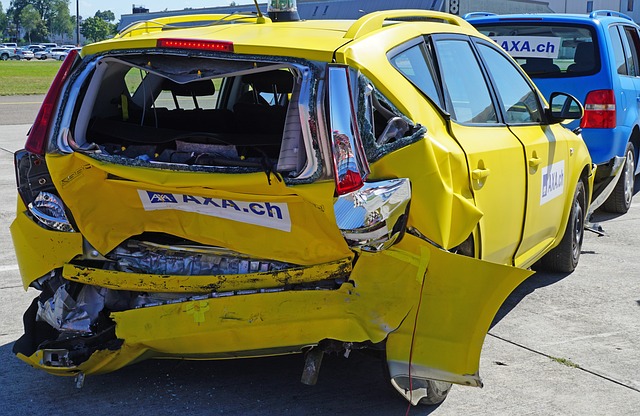Full Coverage Car Insurance offers a broad range of protections beyond basic liability coverage, with comprehensive accident coverage that includes protection against theft, vandalism, natural disasters, and fire. It also covers glass damages without a deductible for minor repairs. A key aspect of these plans is the auto insurance deductible, which affects both your monthly payments and how much you'll pay out-of-pocket when filing a claim. Selecting an appropriate deductible is crucial as it balances cost savings with the level of protection you desire. Vehicle Protection Plans within full coverage packages can be tailored to individual financial situations and risk tolerances, offering additional services like roadside assistance for comprehensive coverage and peace of mind on the road. By carefully considering your deductible and the specific coverages you need, Full Coverage Car Insurance serves as an essential vehicle protection plan, safeguarding against a multitude of potential accidental damages and ensuring that policyholders are well-prepared for various scenarios.
Exploring the benefits of robust Auto Insurance Deductibles, this article delves into the advantages of opting for Full Coverage Car Insurance over basic liability. It elucidates how comprehensive auto insurance acts as a shield against non-collision perils such as theft, vandalism, and natural disasters, ensuring your vehicle remains protected. With Vehicle Protection Plans enhancing your policy, and detailed insights into what to expect from Accident Coverage, this read offers a clear guide on safeguarding your ride with comprehensive coverage.
- Understanding Full Coverage Car Insurance: Beyond Basic Liability
- Comprehensive Auto Insurance Deductibles: Balancing Cost and Protection
- The Role of Vehicle Protection Plans in Enhancing Your Policy
- Accident Coverage: What to Expect with Comprehensive Car Insurance
Understanding Full Coverage Car Insurance: Beyond Basic Liability
When delving into Full Coverage Car Insurance, it’s crucial to understand that it transcends the basic liability coverage mandated by many states. Basic liability insurance covers damages or injuries you inflict on others, but it falls short in protecting your own vehicle. Full Coverage Car Insurance serves as a robust vehicle protection plan, offering a comprehensive suite of benefits that include accident coverage for a range of scenarios. This extensive coverage encompasses protection against non-collision incidents such as theft, vandalism, and damage from natural disasters or fire. It also extends to glass coverage insurance, ensuring that drivers can promptly address damages to their windshields or windows without incurring significant out-of-pocket expenses. Deductibles, the amount you pay before your insurance coverage kicks in, are a key component of Full Coverage Car Insurance policies. Choosing an appropriate deductible balance can significantly impact your premium and overall financial responsibility in the event of a claim. Moreover, many comprehensive plans include additional services like roadside assistance, providing peace of mind during unexpected vehicle breakdowns. This added layer of security is particularly valuable for drivers who prioritize thorough protection for their vehicles against potential risks. By carefully considering the specifics of Full Coverage Car Insurance and selecting a plan that aligns with your needs and budget, you can ensure that you are fully prepared should an incident occur.
Comprehensive Auto Insurance Deductibles: Balancing Cost and Protection
When considering full coverage car insurance options, understanding the role of deductibles is crucial. A deductible represents the amount an insured individual agrees to pay out-of-pocket before their auto insurance kicks in for a claim. Selecting the right deductible involves balancing cost and protection. A higher deductible typically leads to lower premiums, making full coverage car insurance more affordable. However, this means that policyholders will shoulder more of the costs should they file a claim. On the other hand, choosing a lower deductible can result in higher premiums but offers greater financial security when an accident occurs. Vehicle protection plans with lower deductibles are ideal for those who prefer minimal out-of-pocket expenses in the event of non-collision incidents like theft, vandalism, or natural disasters. Conversely, drivers more inclined to manage risk through budgeting can opt for higher deductibles within their comprehensive auto insurance coverage, ensuring they have robust protection against a wide range of potential risks while maintaining control over their monthly expenses. Auto insurance deductibles are a key factor in tailoring a plan that aligns with one’s financial situation and risk tolerance, providing a balance between the cost and the level of protection needed for their specific circumstances.
The Role of Vehicle Protection Plans in Enhancing Your Policy
Incorporating a Vehicle Protection Plan into your Full Coverage Car Insurance policy can significantly enhance the level of protection for your vehicle. These plans are designed to address a multitude of unforeseen events that could otherwise leave you financially burdened. Unlike basic liability insurance, which covers damages or injuries you cause to others, these plans extend coverage to include your own vehicle against theft, vandalism, and natural disasters such as floods or hurricanes. This comprehensive approach ensures that you are not left with costly repairs or replacement expenses should your car be damaged in non-collision incidents like fire or falling objects. Moreover, these plans often include glass coverage insurance, which is particularly beneficial for unexpected windshield cracks or window damage. By opting for a higher level of coverage, drivers can rest assured that they are prepared for a wide range of potential risks.
Another critical aspect of enhancing your policy with an Auto Insurance Deductible option is the financial predictability it provides. While a deductible represents the amount you agree to pay out-of-pocket before your insurance coverage kicks in, choosing the right deductible can offer a balance between lower premiums and manageable costs in the event of a claim. This feature of Vehicle Protection Plans allows for personalization of your policy to fit your financial situation and risk tolerance. Additionally, many comprehensive plans come with roadside assistance, which is an indispensable service during unexpected vehicle breakdowns. This coverage typically includes towing, battery jump-starts, flat tire changes, and lockout services, adding another layer of security for drivers on the road. By carefully considering your specific needs and the potential risks you face, a Vehicle Protection Plan can be an invaluable addition to your Full Coverage Car Insurance policy, offering robust coverage against a wide array of accidental damages.
Accident Coverage: What to Expect with Comprehensive Car Insurance
When exploring the realm of auto insurance, understanding what full coverage car insurance entails is crucial for drivers seeking comprehensive protection. This type of policy extends beyond the minimum liability coverage required by law. It includes a robust set of coverages that shield your vehicle from a multitude of perils, not just those involving other vehicles. For instance, if your car is damaged or destroyed due to theft, vandalism, natural disasters like hail or floods, or fire, full coverage car insurance steps in to mitigate financial loss by covering repairs or replacement costs, minus the auto insurance deductible you’ve agreed to pay.
Additionally, glass coverage insurance is often an integral part of these plans, ensuring that your windshield and windows are promptly repaired or replaced after damage. This aspect of vehicle protection plans is particularly valuable, as minor chips can be fixed without incurring a deductible, preventing them from escalating into costlier repairs. Beyond physical damage, comprehensive car insurance also typically includes roadside assistance, which provides peace of mind when it comes to dealing with unexpected vehicle breakdowns. This service offers timely help for issues such as flat tires, dead batteries, or lockout situations. By incorporating these elements, full coverage car insurance acts as a safety net, offering extensive accident coverage and ensuring that policyholders are protected against a wide spectrum of risks on the road.
When considering the robust protections offered by full coverage car insurance, it’s clear that this policy is an invaluable asset for drivers seeking to safeguard their vehicles against a spectrum of unforeseen events. Comprehending the nuances of auto insurance deductibles within comprehensive plans allows drivers to tailor their coverage, balancing cost and protection effectively. Vehicle protection plans can further enhance your policy, offering additional security features that complement the broad accident coverage provided by comprehensive car insurance. In conclusion, investing in a full coverage plan is a prudent decision for any motorist who values their vehicle’s well-being and peace of mind on the road.



